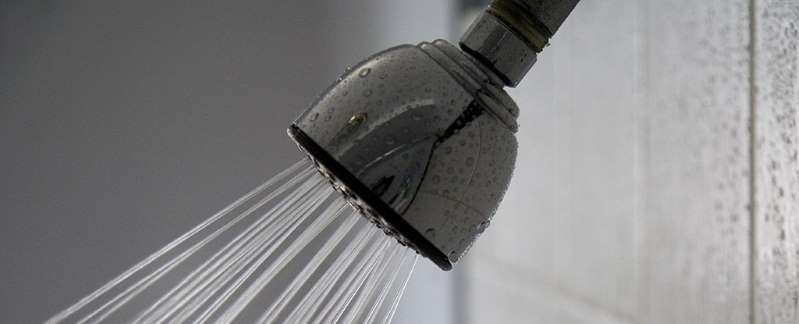The psychological effect of having a clock in your shower is enough to get you in and out more quickly, saving water along the way, according to a small preliminary study.
It makes sense that a visible time display would increase awareness of the passing minutes. While the study is yet to be published, we love the idea of this being a sustainable life hack you can try out yourself to see if it… erm… holds water.
Around 25 different types of accommodation units at Cranfield University in the UK were fitted with Aguardio sensors, water usage monitors that have previously been shown to be effective at conserving water in hotels, since they give the user feedback on how long their showers are taking.
Across the course of four months, people accessing showers with both sensors and time displays spent 20-30 percent less time showering compared with those accessing showers with just sensors fitted. The saving was roughly two minutes per shower.
“These initial findings show that unobtrusive sensors can be effective at capturing anonymous data on hidden water-use behaviours, and that real-time feedback displays can have an influence on those behaviours to promote water conservation,” says environmental scientist Heather Smith, from Cranfield University.
“This preliminary study will inform a much larger trial of the sensors that will incorporate additional forms of messaging to explore the effects of different influential factors on shower behaviour over the longer term.”
Taking inspiration from this research, even without a special water monitor it would be super-easy to put a clock in your shower.
After all, doing your bit for water conservation doesn’t have to be difficult. Previous studies have shown how you can use less water by changing the time of day you water your plants (it’s to do with the evaporation rates) or switching to a healthier diet (which is good for your body and the environment).
While this is only a preliminary study, it does focus on one of the ‘hidden’ behaviours that harm the environment and can be harder to change – people can see you buying more plastic bags or taking long-haul flights, but no one really knows how long you spend in the shower (unless you live with people who run a very tight bathroom schedule).
Where there’s less visible social pressure to think and act in an ecofriendly way, we need to come up with other prompts and tricks to help us act more sustainably – like installing a bathroom clock, perhaps.
“Studies like this can give us a better understanding of water-use habits and motivations to change behaviour to reduce water consumption and costs,” says environmental scientist Caitriona Shannon, from Cranfield University.
“Insights from these studies will contribute to a better understanding of pro-environmental behaviour, and the impact of hidden behaviours in particular.”






